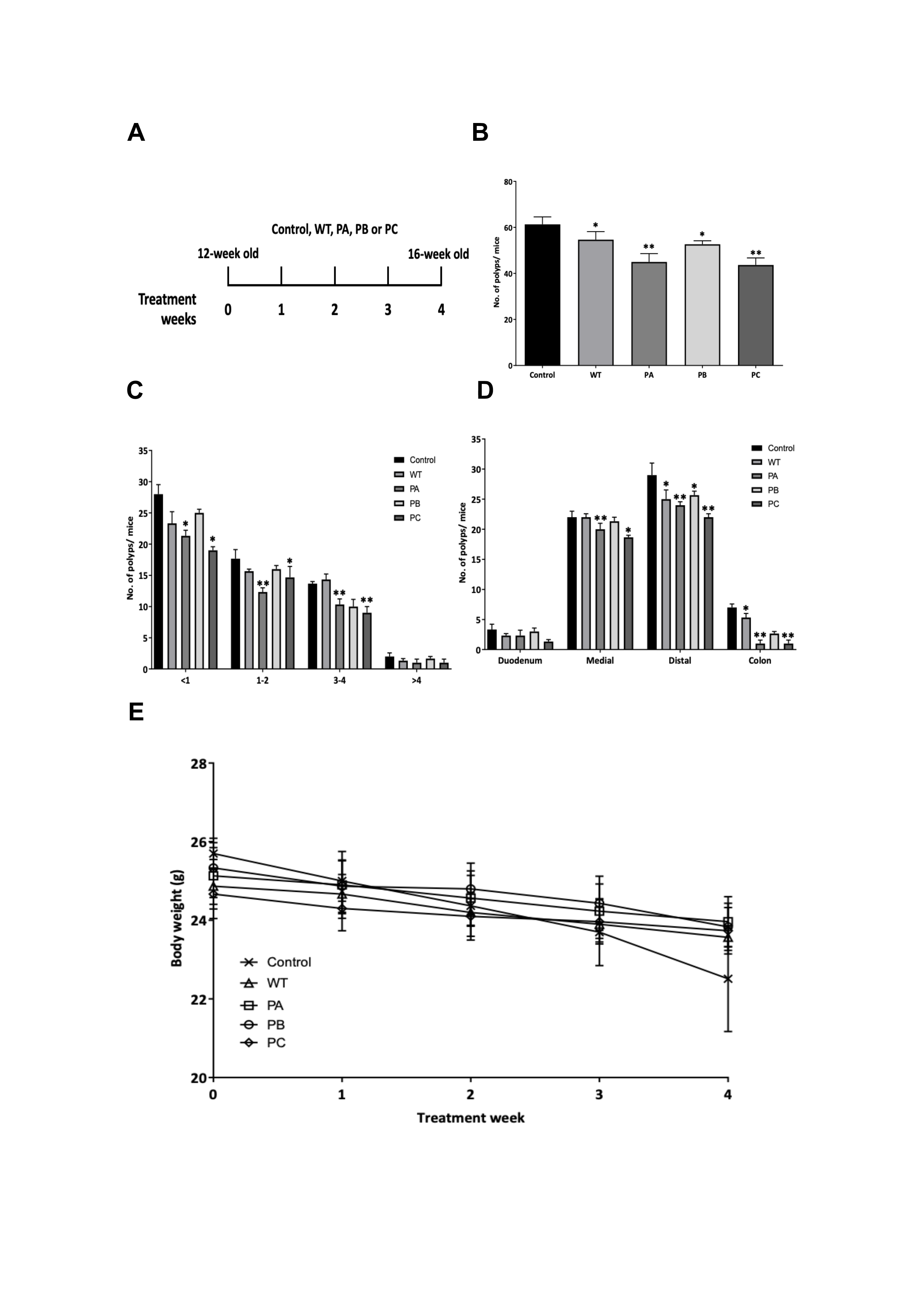Anticancer effect of genetically engineered probiotic engineered probiotics ✨
- Supervisor: Prof. William Chi Shing Tai
- Location: The Hong Kong Polytechnic University
- Duration: Aug 2022 - April 2023
Background
Colorectal cancer (CRC) is a leading cause of mortality worldwide, placing a significant burden on healthcare systems. Its increasing prevalence among younger individuals highlights the urgent need for effective prevention. Current treatments, including chemotherapy, have significant side effects. Probiotics have gained renewed interest due to their safety, convenience, and clinical versatility. Therefore, exploring new strategies to engineer probiotics is a promising field in which to enhance their effectiveness against CRC.
Aims
To investigate the anticancer effect of the engineered Lactobacillus casei in suppressing the formation of polyps and tumor growth in two mouse models of CRC research. This work demonstrated a more outstanding anticancer profile for engineered probiotics compared to wild types in combatting the same condition.
Methods
Three genes, A, B, and C responsible for inducing apoptosis, were inserted into a secretable and constitutively expressed vector. They were delivered to the Apc Min/+ mice and CT26 tumor xenograft mice models through oral gavage. After ten weeks of probiotics treatment, the size and number of polyps, as well as the tumor weight were measured.
Results
Two among three engineered probiotic candidates significantly suppressed the size and number of intestinal polyps and reduced tumor volume and growth rate in ApcMin/+ and tumor-bearing mice models while improving body weight and demonstrating an appropriate safety profile.
 Figure 1. Engineered probiotics exerted anticancer effects on ApcMin/+ mice; A, Treatment scheme; B, The number of polyps per mice detected between PA, PB, PC and control; C and D, The distribution of polyps between PA, PB, PC and control; E, Probiotics administration improve the body weight loss in mice.
Figure 1. Engineered probiotics exerted anticancer effects on ApcMin/+ mice; A, Treatment scheme; B, The number of polyps per mice detected between PA, PB, PC and control; C and D, The distribution of polyps between PA, PB, PC and control; E, Probiotics administration improve the body weight loss in mice.
 tammychandesu
tammychandesu